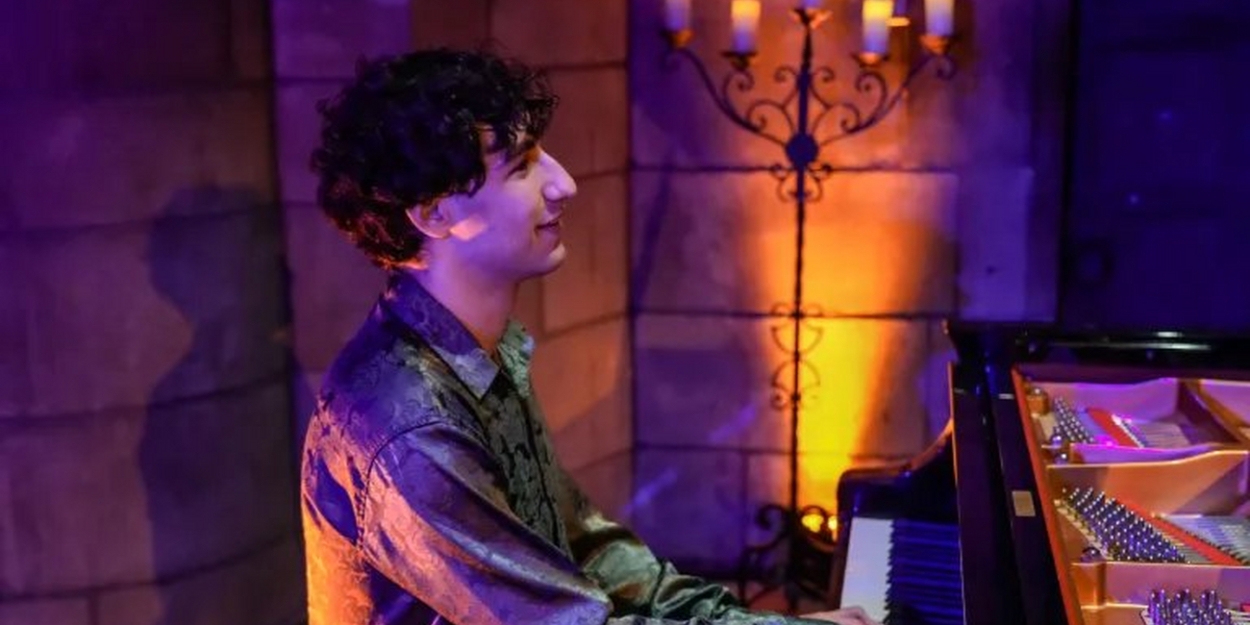Anchorage Symphony Orchestra Opens Season This Month
Learn more about the season here!

On Saturday, September 28th (7:30 pm), the Anchorage Symphony Orchestra will open their 79th season embarking on a unique journey dedicated to exploring fate - the unpredictable and inevitable developments in life that shape our existence.
ASO Music Director Elizabeth Schulze, mused “We had a pretty massive program at the end of last season, and I like to continue a thread. We finished last year with the grandeur of the Russian repertoire. People remember that and they want another hit of great music. You also want to begin a season with the very best an orchestra can give to the audience. So, this year we open with some of the grandest.” This year in a distinctive approach, Elizabeth uses the voices of rising star Carlos Simon, virtuosic composer and pianist Sergei Rachmaninoff, and legendary Russian composer Pyotr Tchaikovsky to guide audiences through the exhilarating power of fate.
Carlos Simon's Fate Now Conquers, the opening of this emotional evening, is a piece that delves into these themes of destiny and fate. Inspired by a passage from Homer's The Iliad, the music mirrors the ups and downs of life, where sudden changes occur, much like fate itself. Simon's use of shifting rhythms and melodies creates a sense of uncertainty, as if we are at the mercy of forces beyond our control. The music, at times turbulent and chaotic, captures the feeling of being swept along by something bigger than ourselves.
The title, Fate Now Conquers, hints at the idea of surrendering to destiny, as if fate is something that has already been decided. But even in the midst of all the twists and turns, there are moments of calm where everything seems to come together, offering a brief sense of hope. These moments remind us that while fate may be powerful, there are still chances for clarity and control, even if only for a little while.
Continuing the evening’s journey is Rachmaninoff's Rhapsody on a Theme of Paganini. This energetic and playful piece takes listeners on a musical tour full of surprises. Built around a theme by the famous violinist Niccolò Paganini, Rachmaninoff transforms it through a series of variations, each with its own character. Sometimes the music is bold and dramatic, other times light and whimsical, showcasing Rachmaninoff's skill at taking a simple melody and turning it into something grand and varied. The constant changes in mood and tempo keeps listeners on their toes, making it an exciting piece to listen to.
One of the most famous moments in The Rhapsody is the 18th variation, where Rachmaninoff flips the original theme upside down to create a lush, romantic melody that has become one of his most beloved tunes. This moment feels like the heart of the piece—a sudden pause in the excitement where the music becomes dreamy and emotional. It's a great example of how Rachmaninoff blends technical brilliance with deep feeling, keeping listeners engaged from start to finish.
Maxim Lando, a rising star in the world of classical music, known for his dynamic performances and impressive technique, brings this powerful piece to life. Despite his young age (21), he has already captured the attention of audiences and critics alike with his expressive playing and ability to bring fresh energy to the piano. Lando's performances are marked by a combination of technical mastery and emotional depth, allowing him to tackle both challenging, virtuosic works and more delicate, lyrical pieces with equal skill. Whether performing solo or with an orchestra, he connects with audiences through his passion for the music, making each performance an engaging experience.
Tchaikovsky's Symphony No. 5, with its powerful exploration of fate woven throughout, closes the evening. From the beginning, a somber melody appears, representing the idea of fate—unavoidable and ever-present. This theme recurs in different forms as the symphony progresses, symbolizing how fate can take on various shapes and emotions in life. Sometimes, it feels dark and heavy; other times, it is more hopeful. Still, it's always there in the background, a reminder of something beyond our control. The music takes listeners on a journey through a wide range of emotions, from melancholy to triumph, capturing our complex relationship with destiny.
As the symphony moves into its final movement, the theme of fate returns, but this time transformed into a triumphant, almost celebratory melody. It feels like a moment of victory, as though Tchaikovsky is suggesting that fate doesn't always have to be something to fear or resist—it can be something to embrace and overcome. This dramatic transformation from dark to light gives the symphony a sense of resolution, leaving listeners feeling hopeful. Tchaikovsky's Symphony No. 5 is not just a reflection on fate but a reminder that despite life's challenges, there is always the possibility for redemption and triumph.
Anchorage Symphony’s Opening Night, Saturday, September 28, 2024, (7:30pm) in the Atwood Concert Hall, Alaska Center for the Performing Arts. Infrared headphones for the hearing impaired are available concert night from the House Manager on the Orchestra Level. Tickets: Adult, $52-$27; Youth, $24.75-$12.50; Senior, $46.50-$24.50 (prices include all surcharges and fees). Military, student and group discounts available. To purchase tickets, go to www.centertix.com or call 263-ARTS (2787), toll free at 1-877-ARTS- TIX.
Comments
Videos

